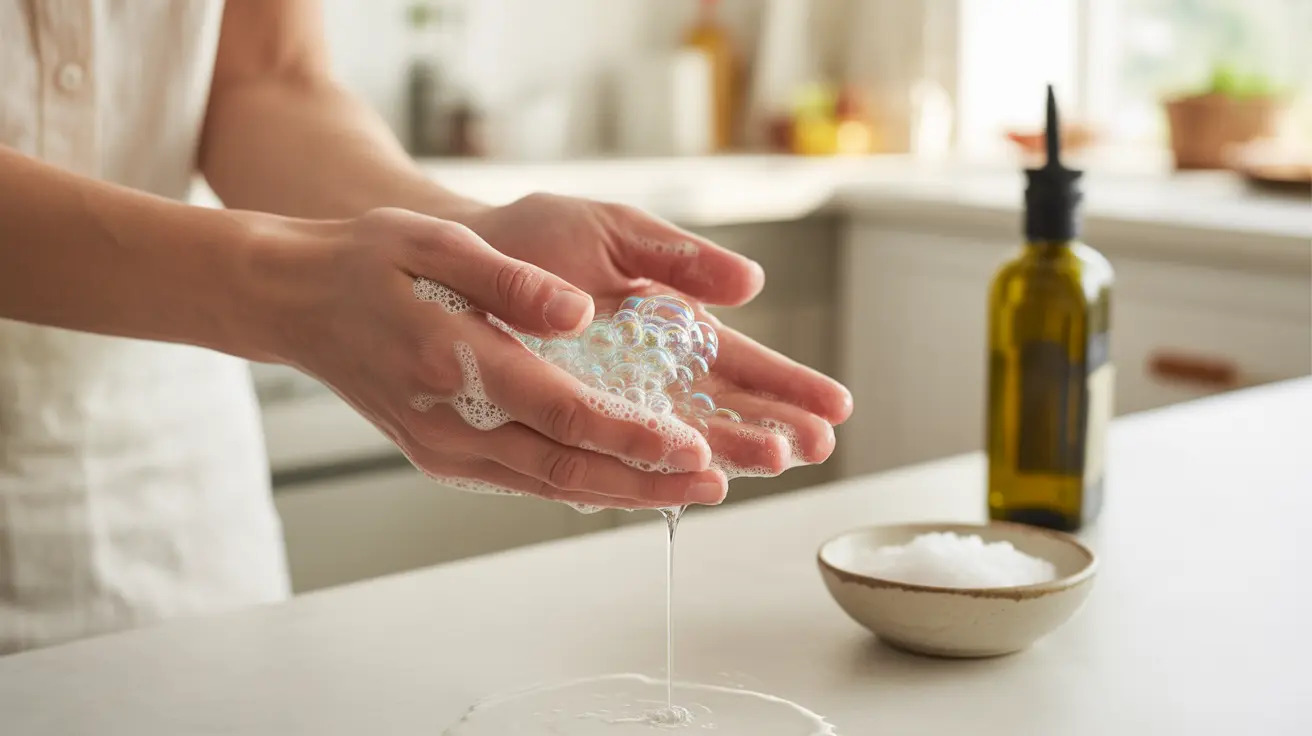Getting super glue on your hands can be a frustrating and concerning experience. While super glue is designed to create strong, lasting bonds, there are several safe and effective methods to remove it from your skin without causing damage or irritation. This guide will walk you through proven techniques using both common household items and specialized products.
Understanding Super Glue and Skin Contact
Super glue, or cyanoacrylate adhesive, forms an incredibly strong bond when it comes into contact with moisture, including the natural moisture present in your skin. While this situation can be alarming, it's important to know that the adhesive will naturally loosen and peel off within 1-2 days. However, if you need to remove it sooner, there are several safe methods available.
Safe Removal Methods Using Household Items
Warm, Soapy Water Soak
The gentlest method to begin with is soaking your hands in warm, soapy water for 10-15 minutes. This helps soften both the skin and the adhesive, making it easier to gradually peel away. Use mild soap and ensure the water is comfortably warm, not hot.
Salt or Sugar Scrub
Creating a gentle abrasive paste with salt or sugar mixed with a small amount of water can help break down the super glue bond. Gently massage the affected area with the paste using circular motions, being careful not to scrub too aggressively.
Using Safe Chemical Solutions
Nail Polish Remover Method
Acetone-based nail polish remover is one of the most effective solutions for removing super glue. However, it's important to follow these steps:
- Test a small area first to check for skin sensitivity
- Apply the acetone using a cotton ball
- Gently massage the area until the glue begins to soften
- Peel the adhesive away carefully once loosened
- Wash hands thoroughly and moisturize after treatment
Margarine or Oils
Natural oils can help break down super glue's bond with skin. Apply olive oil, coconut oil, or even margarine to the affected area and gently massage. The oils will gradually help separate the glue from your skin while providing moisturization.
Prevention and Safety Tips
To avoid future incidents with super glue, consider these preventive measures:
- Wear disposable gloves when working with super glue
- Work in a well-ventilated area
- Keep the work surface covered
- Store super glue properly and away from children
- Have removal supplies readily available
When to Seek Medical Help
While most super glue incidents can be handled at home, certain situations require professional medical attention:
- If glue bonds skin to skin (especially fingers)
- When large areas are affected
- If the glue contacts sensitive areas
- If you experience any allergic reactions
- When removal attempts cause skin damage
Frequently Asked Questions
What are the safest and most effective ways to remove super glue from hands at home?
The safest methods include soaking in warm, soapy water, using natural oils like olive oil or coconut oil, and creating gentle salt or sugar scrubs. These methods are effective while being gentle on your skin.
Can I use acetone or nail polish remover to get super glue off my skin without causing irritation?
Yes, acetone-based nail polish remover can be used safely if you first test for skin sensitivity and follow up with thorough washing and moisturizing. Apply it sparingly using a cotton ball and avoid prolonged exposure.
What household items can help loosen super glue on hands without damaging the skin?
Common household items that can help include warm water and soap, cooking oils, margarine, and gentle abrasives like salt or sugar mixed with water. These items are generally safe and effective for super glue removal.
What should I avoid when trying to remove super glue from my fingers to prevent skin injury?
Avoid forcefully pulling bonded skin apart, using sharp objects to scrape the glue, or applying harsh chemicals not meant for skin contact. Don't use hot water or aggressive scrubbing, as these can damage your skin.
When should I seek medical attention after getting super glue stuck on my skin?
Seek medical attention if fingers become bonded together, if a large area is affected, if the glue contacts sensitive areas, or if you experience any allergic reactions or skin damage during removal attempts.




